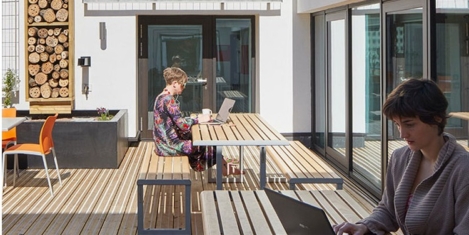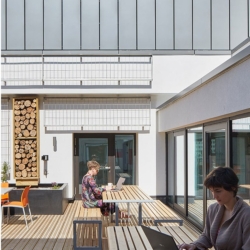To provide the best experiences, we use technologies like cookies to store and/or access device information. Consenting to these technologies will allow us to process data such as browsing behaviour or unique IDs on this site. Not consenting or withdrawing consent, may adversely affect certain features and functions.
The technical storage or access is strictly necessary for the legitimate purpose of enabling the use of a specific service explicitly requested by the subscriber or user, or for the sole purpose of carrying out the transmission of a communication over an electronic communications network.
The technical storage or access is necessary for the legitimate purpose of storing preferences that are not requested by the subscriber or user.
The technical storage or access that is used exclusively for statistical purposes.
The technical storage or access that is used exclusively for anonymous statistical purposes. Without a subpoena, voluntary compliance on the part of your Internet Service Provider, or additional records from a third party, information stored or retrieved for this purpose alone cannot usually be used to identify you.
The technical storage or access is required to create user profiles to send advertising, or to track the user on a website or across several websites for similar marketing purposes.
 High-status political figures and senior executives are only influential if their own ideologies are seen as mainstream and not too extreme, claims new research from business school ESMT Berlin. Those with high-status in an organisation have greater influence, making it easier for them to get their ideas and initiatives adopted by the organisation. Their views often carry greater weight due to the greater attention paid to them, the higher likelihood they are seen in a positive light, and the strong support networks around their ideas. (more…)
High-status political figures and senior executives are only influential if their own ideologies are seen as mainstream and not too extreme, claims new research from business school ESMT Berlin. Those with high-status in an organisation have greater influence, making it easier for them to get their ideas and initiatives adopted by the organisation. Their views often carry greater weight due to the greater attention paid to them, the higher likelihood they are seen in a positive light, and the strong support networks around their ideas. (more…)






 More than half of UK workers – 53 percent – plan to make a change to their career in the next 12 months as a direct result of the Coronavirus pandemic according to a new study from
More than half of UK workers – 53 percent – plan to make a change to their career in the next 12 months as a direct result of the Coronavirus pandemic according to a new study from 
 As the UK is in the midst of the traditional ‘back to school’ period, many workplaces are debating over when to return to the office, and how. The sudden move to remote working during lockdown has proven that a new hybrid way of working is in fact possible for numerous organisations, but this has come at the expense of face to face communication and in person collaboration.
As the UK is in the midst of the traditional ‘back to school’ period, many workplaces are debating over when to return to the office, and how. The sudden move to remote working during lockdown has proven that a new hybrid way of working is in fact possible for numerous organisations, but this has come at the expense of face to face communication and in person collaboration. 
 For middle-market and small businesses, the COVID-19 pandemic is highlighting the vital importance of investing in new technology, facilitating remote work, and maintaining the tech-savvy workforce needed to make it all happen, according to a survey conducted by The Harris Poll for
For middle-market and small businesses, the COVID-19 pandemic is highlighting the vital importance of investing in new technology, facilitating remote work, and maintaining the tech-savvy workforce needed to make it all happen, according to a survey conducted by The Harris Poll for 


 A new survey by UK job board
A new survey by UK job board 
 New research by the
New research by the 
 A survey carried out by mental health organisation,
A survey carried out by mental health organisation, 




 New analysis of official data released to the
New analysis of official data released to the 







September 16, 2020
Get used to the idea of work as an experience rather than a place
by Tim Oldman • Comment, Flexible working, Property, Workplace design